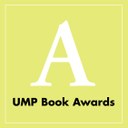Leonardo: The Heretical Archive
This is a very ambitious, very inspiring, but also very difficult book, which has to be situated at the crossroads of philosophy, psychoanalysis, and film studies - although the basic stance of the author, professor of French and Italian at Northwestern, is of course not to juxtapose these three domains, but interweave them in new and complex ways.
The starting point of this study is a reflection on the archive, more precisely on the seminal rethinking of the archive as an intersection of "law" and "place" as put forward by Jacques Derrida in Archive Fever. This reflection combines and defends three different although strongly interrelated theses: 1) Derrida's reworking of the archive and his strong emphasis on the interaction between transmission and death leave aside a number of possibilities that it is now possible to tackle more directly; 2) the critical rereading of Derrida, which the author presents as a kind of supplement to Archive Fever, not as its substitute or alternative, can take benefit from certain strands of psychoanalysis that have been "repressed" in Freudian and post-Freudian psychoanalysis (and for Torlasco Derrida remains to a certain extent a representative of such repression) as well as from certain forms of phenomenology (and here the major reference is the later Merleau-Ponty); 3) this reinterpretation of the philosophical and psychoanalytical interpretation of the archive is both made possible and performed by contemporary visual art, more particularly contemporary post-cinematic video art, where several key artists are exploring new ways of working and playing with the (filmic) archive through digital means.
By: Jan Baetens
Story Date: 2013-10-02T00:00:00



